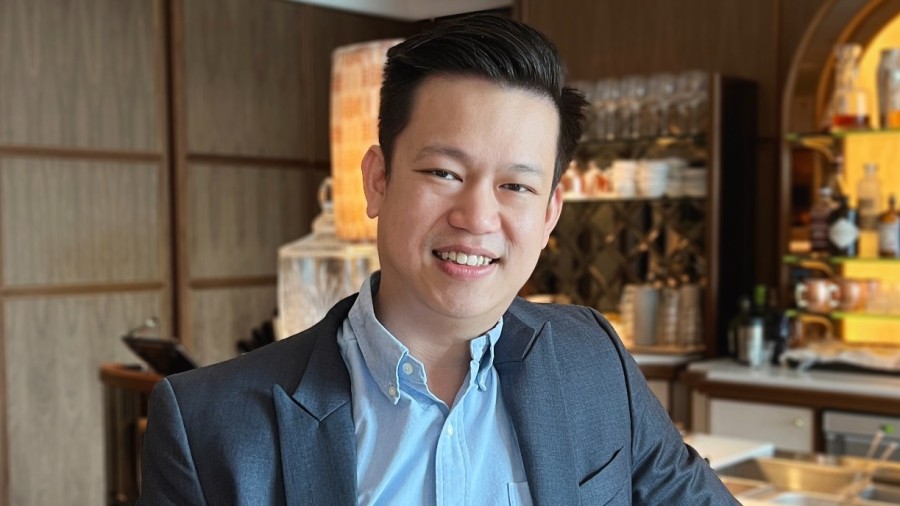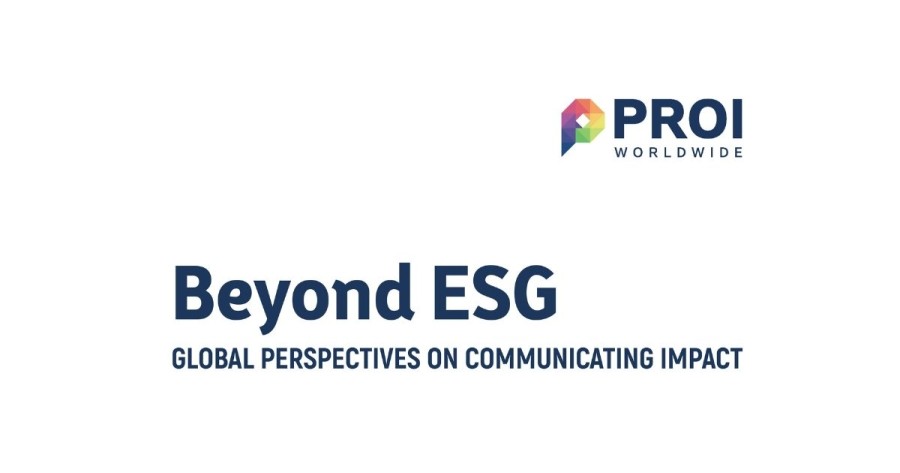Entrepreneurship in the communications industry is not uncommon - but what does it truly take to build an agency and scale it over time?
Telum Media sat down with Jonathan Tan, Founder and Managing Director of VoxEureka, to learn about his journey from communications practitioner to agency founder.
Serendipity Finds its Way
“I had no intention to start a business,” Jonathan recalled. “I was just going to take a sabbatical and enjoy my honeymoon.”
At the time, Jonathan was serving as the Associate Managing Director at Cohn & Wolfe Malaysia. He has built his career with big agencies like FleishmanHillard, established XPR’s operations in Malaysia, and spent over four years at Cohn & Wolfe following its acquisition of XPR.
Beyond numbers and targets, broader industry pressures weighed on him. Jonathan observed that the Malaysian market was evolving and required agencies to become more agile.
“There were a lot of restrictions in what we could or could not do,” he reflected.
Amid shifting market demands, and with a personal milestone - he was newly married and ready for a pause - Jonathan decided to take a sabbatical in 2017.
Three months in, he received an unexpected call from Justin Then, then CEO of Hill & Knowlton Malaysia. Despite never having worked together directly, they had crossed paths within the WPP network. What began as a casual chat turned out to be something more. Justin was working on some client pitches and had asked Jonathan to join him.
“In business, you cannot just simply close doors.”
Jonathan took on the offer and soon found himself pitching to several major brands, including Nokia, McDonald’s, and Heineken - and winning all of them. That marked the end of his sabbatical.
As projects started to multiply rapidly, he pulled together a small team of five from his personal network. This group eventually grew into VoxEureka, a communications agency with a team of 70 and growing.
A Purposeful Voice
Reflecting on the agency’s name, Jonathan shared that it was inspired by both the U.S.-based Vox Media’s strong investigative journalism and the film The King's Speech. Drawing from the Latin word vox (meaning "voice"), he explained:
“Every brand has a voice, and we want to be the partner that helps them find their voice and bring it to life.”
But beyond helping clients speak up, Jonathan believes agencies should also express their own voice.
“PR agencies are forever trying to convince clients that the intangible matters. So you have to look back at all these intangibles - your own internal social media branding, awards, and all these kinds of things.”
Still, he is clear about the importance of staying genuine and authentic - whatever is shared online should be a true reflection of the experience within VoxEureka.
He also challenges his team to go beyond what’s presented on social media.
“Looking like a fun place to work is one thing,” he noted, “but we want to be known for doing great work.”
Leading with Heart and Accountability
Leadership has long been a part of Jonathan’s life, but his perspective continues to evolve through the years.
“It’s so cliché, but I think I’m very big on empathy and making sure that I always lead by example.” Whether the team was five or now 70, getting to know the people behind the work remains a priority.
“They can’t just be employees and workers, and I can’t come into the office every day and not knowing them as a person.”
Even as the agency expanded into Singapore and Indonesia, Jonathan remained attuned to the emotional needs of the team. Upon learning that some of the new country teams felt disconnected, he invited them to spend time at the Malaysian HQ - to experience the vibrancy and energy of the home base.
And as VoxEureka grew, so did the complexity of leadership. One of his key lessons is learning to accept that not every leader leads the same way or has the same emotional bandwidth.
Becoming a father also reshaped how he views leadership and growth, as it taught him that people go through different seasons and that change, whether in priorities or personalities, is part of the journey.
Jonathan also came to understand that the higher he grows, the greater the weight of responsibility and sacrifices that comes with it. “With every bit of power, there’s an equal weight of risk and vulnerability,” he expressed. “It’s always a double-edged sword.”
For him, true leadership means taking accountability. “If something goes wrong with this agency, the buck stops with me.”
There are decisions, he adds, that leaders must quietly wrestle with that can’t always be explained or shared but are carried for the good of the team.
Advice on Entrepreneurship
When asked what advice he’d give PR professionals who are thinking of launching their own agency, Jonathan said:
“I will always advocate for people to take a chance, try something, without making it a cliché like just chase your dreams - but always be grounded in pragmatism.”
Starting VoxEureka involved many considerations.
“Financially, don’t blow your life savings and put your family in trouble.”
He stressed the importance of being mindful of life stages. Starting a business with a newborn, for instance, may not be the best timing.
“You’re going to have to work really long hours. And it’s not just the hours - it’s your head space, it’s your focus, it’s your prioritisation and all that. And it’s not fair to think that you can balance everything perfectly at the cost of your family and your child.”
He noted that having a reliable support system is also key.
"Make sure you have strong enough connections, and you have a sense that if you go into this, you have some footing, you have some support, you have some people cheering you on.”
Jonathan draws inspiration from ice hockey legend Wayne Gretzky's words: “If you don’t take the shot, you miss 100%.”
A timely reminder to embrace opportunities - but with eyes wide open.

Feature
Telum Talks To: Jonathan Tan from VoxEureka
by Telum Media
18 June 2025 4:00 PM
6 mins read
Telum Media creating connections
Get in touch to learn more
Previous story
The Coalition - Policy, Power and the Path Ahead
Next story
IABC APAC unveils board members 2025/26 term
You might also enjoy
Moves
Aaron Tan has joined FleishmanHillard as Auto Practice Lead and Account Director, bringing experience across branding, communications, marketing and digital strategy.
Based in Singapore, he has accumulated more than 15 years of experience, having previously held senior roles at agencies including The Ate Group and W Communications.
31 December 2025 2:49 AM
1 min read
Moves
Alexa Cheah has joined W Kuala Lumpur as Marketing Communications Manager. In her new role, she manages the hotel’s brand and communications efforts, including media relations, corporate communications and reputation, events, social media, as well as beverage and food marketing, working alongside the Director of Marketing Communications.
Her prior experience includes roles at Grand Hyatt Kuala Lumpur, followed by Hyatt Hotels in Malaysia, where she contributed to brand campaigns, hotel openings, and cross-property initiatives in the cluster marketing team.
29 December 2025 7:17 AM
1 min read
Research
PROI has released their latest report, "Beyond ESG: Global perspectives on communicating impact". With insights from 11 global communications agencies, the report highlights key trends shaping how ESG and purpose will be communicated in 2026.
Ted Deutsch, Executive Managing Director of RF|Binder and Chair of PROI's ESG Working Group, said: "While certain markets are shying away from acronyms and terms that are seen as overly political, this PROI report confirms that companies are still focused on driving change through sustainability, corporate culture and good governance. The challenge now lies in communicating this with authenticity."
ESG across the regions
ESG maturity differs widely by region. Markets such as Australia, Switzerland, and the Middle East operate in relatively advanced regulatory environments. In Australia especially, Paula Cowan, Managing Director at ImpactInstitute, described ESG as no longer a "nice to have," but rather a licence to operate.
Meanwhile, countries such as Poland and the Czech Republic are experiencing signs of ESG fatigue. As Dirk Aarts, CEO of 24/7 Communication, observed in Poland: "...enthusiasm has cooled. Many businesses now treat ESG chiefly as a regulatory requirement rather than a reputational advantage."
In Thailand, ESG is viewed as central to long-term competitiveness, economic resilience, and access to global markets. Whereas in Ukraine, ESG is shaped by wartime realities and EU integration, with social impact and resilience taking precedence.
Despite their differences, one thing stays consistent: stakeholder expectations are converging. The report highlights how companies are increasingly expected to demonstrate real progress and credible outcomes rather than just showing intent.
Global pressures driving change
It was reported that every region, in one way or another, was being impacted by global forces reshaping their ESG communications. Regulatory alignment stood out as a major driver, particularly around mandates by the International Sustainability Standards Board (ISSB), the Corporate Sustainability Reporting Directive (CSRD), and other international disclosure frameworks.
Trade-related mechanisms, such as the EU's Carbon Border Adjustment Mechanism, have resulted in a push for ESG adoption in export-oriented economies like Thailand. Chelsea King, Head of PR Operations and Editorial Director Midas PR, explained: "This creates direct financial pressure and has spurred Thailand’s domestic carbon tax and mandatory reporting efforts."
Political dynamics also play a significant role, with the U.S. becoming the focal point of ESG politicisation, influencing corporate behaviour across multiple markets. This has contributed to more cautious language globally. For example, in Canada, "...U.S. discourse has influenced Canadian corporate leaders to reconsider how explicitly they use the 'ESG' label," said Kimberly Cohen, CEO of Brown & Cohen.
At the same time, global enforcement action against greenwashing is increasing in Canada, as well as other markets such as Australia, Switzerland, and the UK, reinforcing a shift toward proof-based communication.
Language and framing
The report outlined a clear global trend: the declining use of the acronyms "ESG" and "DEI" in public-facing communications. While these terms remain common in investor, regulatory, and technical contexts, organisations are shifting toward simpler and less politicised language, such as "sustainability," "responsible business," "resilience," and "impact."
Kimberly noted that in Canada, these acronyms are increasingly being broken down into their component parts, whereas in Poland, Dirk explained that the narrative now focuses on health, quality of life, and local community impact - moving away from war language, such as "fighting climate change," toward tangible well-being. This shift doesn't reflect a divergence from ESG principles, but rather as an effort to improve clarity, reduce political risk, and connect more directly with local audiences.
Across several regions, including Canada, the UK, the U.S., Thailand, and the Middle East, an increase in social initiatives continues, but under different labels, such as workforce development, inclusion and belonging, human capital management, and community impact.
Communications challenges
Across all regions, communications leaders are reported to have been facing similar challenges, particularly in balancing ambition with credibility. Stakeholders expect companies to act, but are increasingly rejecting vague or exaggerated claims. Greenwashing, social-washing, and "greenhushing" - deliberately under-communicating progress, which is reported to be rising in Australia - are recurring risks.
Another challenge is internal alignment. ESG data and narratives often sit across multiple functions at an organisation, and when teams are not aligned, messaging can become inconsistent or fragmented, resulting in a lack of trust. In sensitive contexts, such as in Ukraine or politically polarised markets like the U.S. and UK, audiences are sceptical and quick to point out inauthenticity.
Looking ahead
Contributors generally predict that over the next two to three years, ESG communications are expected to become more integrated with financial reporting and core business strategy. Many regions anticipate stricter disclosure requirements, greater use of assurance, and increased focus on governance as the foundation for environmental and social credibility.
Media scrutiny is also intensifying. Investigative reporting on ESG claims is growing, while routine sustainability announcements receive less attention unless backed by data or clear outcomes. At the same time, there is continued demand for accessible explanations, case studies, and stories that demonstrate how ESG efforts deliver tangible benefits to communities, employees, and economies.
Practical guidance for communications professionals
Based on insights across all 11 markets, some common practical guidance include:
- Lead with evidence: Anchor claims in data, defined methodologies, and disclosures, with assurance.
- Adapt language and be precise: Localise messaging and ensure clear messaging that resonates with target audiences, while avoiding unnecessary jargon.
- Show progress over time: Share interim milestones and regular updates to demonstrate momentum and avoid greenwashing or greenhushing.
- Integrate ESG into the business narrative: Position environmental, social, and governance efforts as part of core strategy and operations, rather than a standalone initiative globally.
Find the full report, including in-depth insights for each region, here.
29 December 2025 6:15 AM
5 mins read


